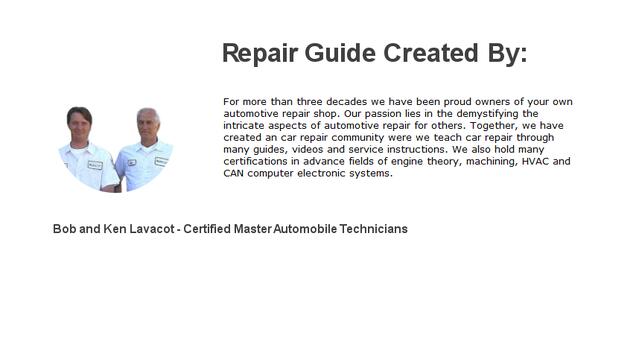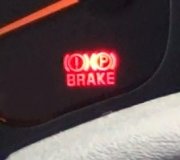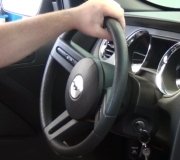An automobile brake system lock up is dangerous and inconvenient. The normal operation of a brake system is to be applied and then to release fully, in this guide we will cover a complete system lock up and individual tire lock up. This guide provides a detailed step-by-step explanation of why automotive brakes lock up, the underlying causes, and how to prevent this dangerous situation on ABS and Traction control safety systems in modern cars.
Note: Even though your car is equipped with the ABS brake system your brakes can still lock up, this is because the malfunction is mechanical which the ABS system cannot control.
Individual Wheel Lock Up
When an individual wheel locks up it is usually restricted to the wheel in question, We will go over the reasons in the order of popularity for convenience.
Brake Disc: When a brake disc locks up is it for one of five reasons:
- The brake pads have worn out enough to where the the brake pad backing plate has fallen between the brake disc (rotor).
- The rubber brake flex hose has a restriction which does not allow the brake fluid pressure to exit the brake caliper.
- One of the caliper mounting bolts has fallen out and is allowing the brake caliper to contact the rim.
- The ABS system control module is malfunctioning.
- A dual piston caliper becomes frozen over time and the pistons will not retract. (This will usually not happen with a signal piston caliper).
Rear Drum Brakes:
- A wheel cylinder has gone bad and is not retracting.
- Gear oil or grease has leaking onto the brake shoes due to a bad axle seal.
- The brake shoes have become "sprung" and loose the correct "arc" which will grab the brake drum.
- A mechanical failure with the brake shoes or mounting hardware such as a broken return spring.
- If the parking brake has been left on of a period of time the brake shoes can rust to the brake drum and not release, this can sometimes be fix by rocking the vehicle back and forth.
Complete Brake System Lock up
This section details the causes for the brake system to lock up and stop the car from moving completely.
- The brake master cylinder has gone bad and it not retracting fully.
- The brake booster has gone bad and is not retracting fully.
- The brake booster push rod is adjusted out to far not allow the brake master to retract fully.
- The ABS brake module is having an issue and is pressurizing the brake system.
- The brake light switch is adjust too far inward not allowing the brake pedal to retract.
ABS System Scan
If you suspect the ABS system is having an issue and you have an ABS warning light on the first thing to do is run a diagnostic ABS system scan.
Preventive Measures
Always use high quality brake parts and inspect the brake system regularly. Regular inspection and maintenance of the brake system should be performed at 20k mile intervals. Also, bleed and flush the brake system every 50k miles.
Credits
This guide knowledge base was created by the 2CarPros Team, and by Ken Lavacot: Automobile repair shop owner and certified master automobile technician of over 30 years. If you have question or need help please ask one of our experts we are happy to help. Please visit our 2CarPros YouTube Channel.




